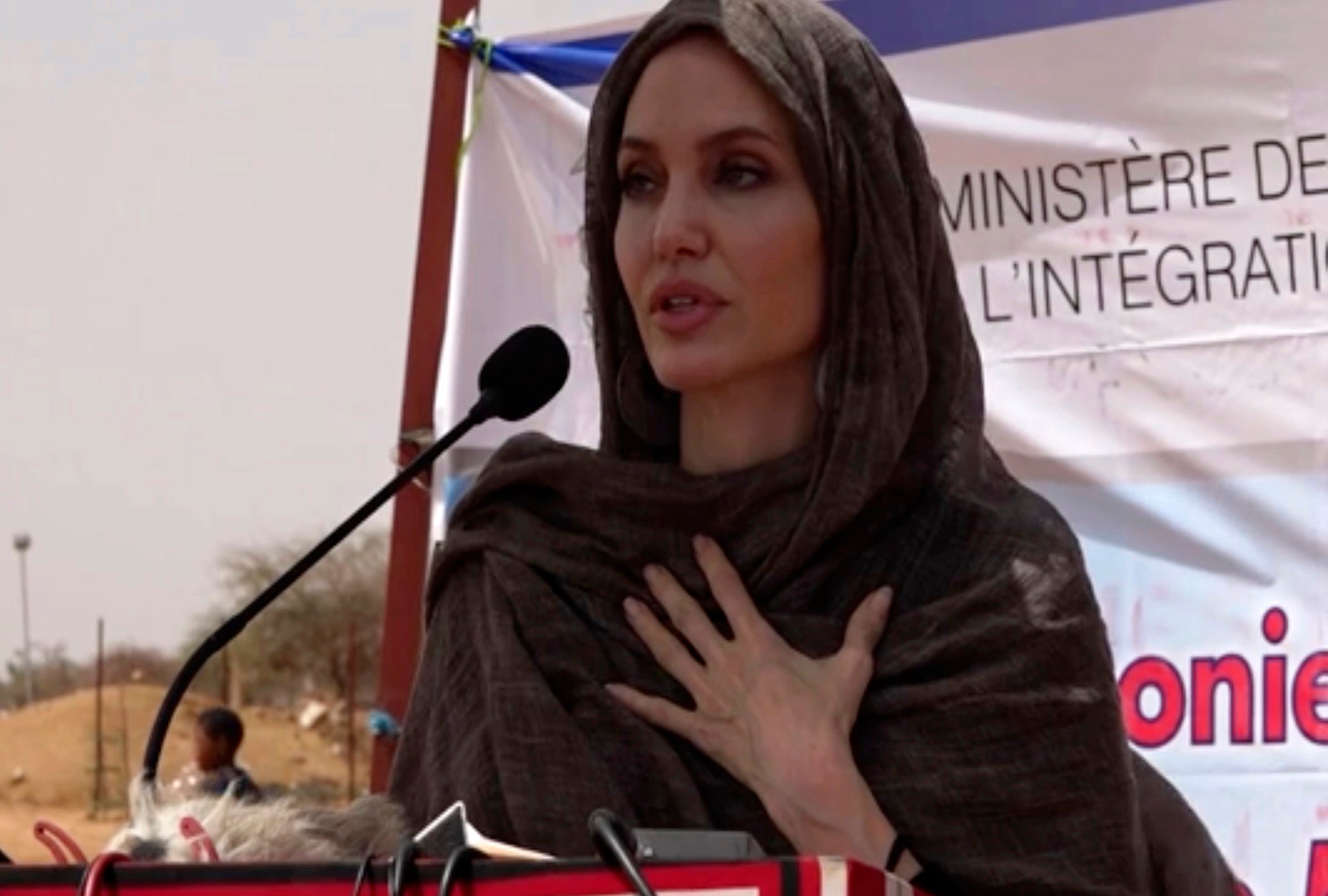Angelina Jolie visits Burkina Faso as U.N. Special Envoy
Hollywood actress Angelina Jolie has visited war-weakened Burkina Faso to show solidarity with people who continue to welcome the displaced, despite grappling with their own insecurity, and said the world isn’t doing enough to help

Hollywood actress Angelina Jolie has visited war-weakened Burkina Faso to show solidarity with people who continue to welcome the displaced, despite grappling with their own insecurity, and said the world isn’t doing enough to help.
While Burkina Faso has been battling a five-year Islamic insurgency linked to al-Qaida and the Islamic State that’s killed thousands and displaced more than one million people, it’s also hosting more than 22,000 refugees, the majority Malian.
“The truth is we are not doing half of what we could and should ... to enable refugees to return home, or to support host countries, like Burkina Faso, coping for years with a fraction of the humanitarian aid needed to provide basic support and protection,” Jolie said.
As Special Envoy to the United Nations High Commissioner for Refugees, Jolie marked World Refugee Day on Sunday in Burkina Faso’s Goudoubo refugee camp in the Sahel where she finished a two-day visit. She spoke with the camp’s Malian refugees and internally displaced people in the nation’s hard-hit Center-North and Sahel regions.
Malians began fleeing to Burkina Faso in 2012 after their lives were upended by an Islamic insurgency, where it took a French-led military intervention to regain power in several major towns. The fighting has since spread across the border to Burkina Faso, creating the fastest growing displacement crisis in the world. Last month Burkina Faso experienced its deadliest attack in years, when gunmen killed at least 132 civilians in Solhan village in the Sahel’s Yagha province, displacing thousands.
The increasing attacks are stretching the U.N.’s ability to respond to displaced people within the country as well as the refugees it's hosting. “Funding levels for the response are critically low and with growing numbers of people forced to flee ... the gap is widening,” UNHCR representative in Burkina Faso Abdouraouf Gnon-Konde told the AP.
The attacks are also exacerbating problems for refugees who came to the country seeking security.
“We insisted on staying (in Burkina Faso), (but) we stay with fear. We are too scared,” said Fadimata Mohamed Ali Wallet, a Malian refugee living in the camp. “Today there is not a country where there isn’t a problem. This (terrorism) problem covers all of Africa,” she said.
__
Mednick reported from Ouagadougou, Burkina Faso.
Bookmark popover
Removed from bookmarks